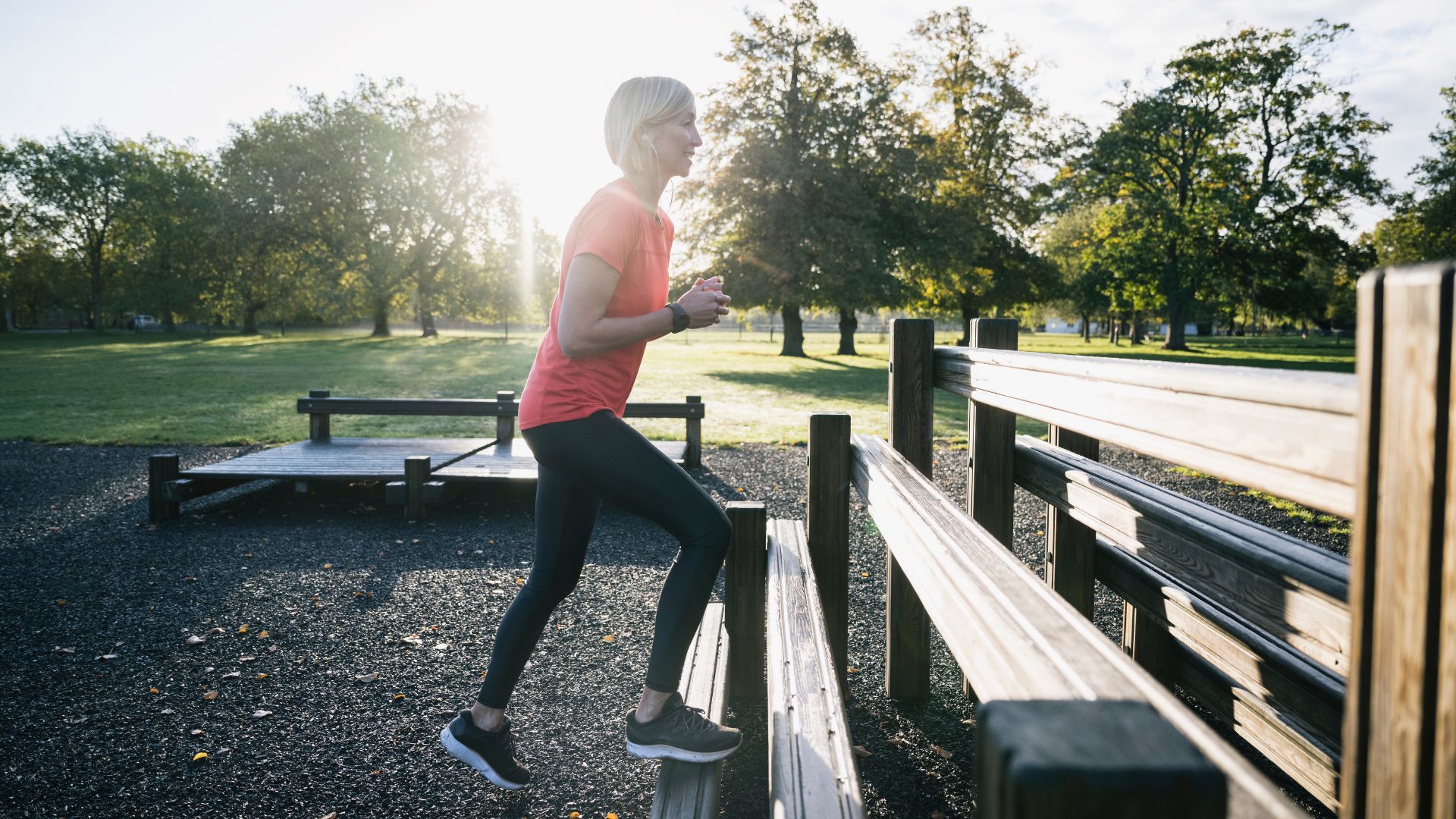You only need 2 simple habits to boost exercise motivation - and they don't cost any money, a new study reveals
Before a workout habit becomes routine, you need exercise motivation to get started, but it can be hard to keep up the enthusiasm


Sign up to our free daily email for the latest royal and entertainment news, interesting opinion, expert advice on styling and beauty trends, and no-nonsense guides to the health and wellness questions you want answered.
You are now subscribed
Your newsletter sign-up was successful
Want to add more newsletters?

Daily (Mon-Sun)
woman&home Daily
Get all the latest beauty, fashion, home, health and wellbeing advice and trends, plus all the latest celebrity news and more.

Monthly
woman&home Royal Report
Get all the latest news from the Palace, including in-depth analysis, the best in royal fashion, and upcoming events from our royal experts.

Monthly
woman&home Book Club
Foster your love of reading with our all-new online book club, filled with editor picks, author insights and much more.

Monthly
woman&home Cosmic Report
Astrologer Kirsty Gallagher explores key astrological transits and themes, meditations, practices and crystals to help navigate the weeks ahead.
We know that exercise has so many benefits for our health - from boosting fitness and lowering our risk of cardiovascular disease to warding off anxiety and depression. However, it's not always easy to dig up the energy to go to the gym, head out on a run, or get 10,000 steps in.
A new study on exercise motivation may have the answer for those struggling to stay dedicated to a routine, after finding that participants were more committed to exercise after monitoring their steps via a walking app and engaging in some mindfulness practices.
The benefits of using a fitness tracker have been well recorded, but this research is the first to study the combined role of digital intervention and mindfulness training on behaviour change.
All the participants in the study, led by the University of Bath, were English adults not meeting the recommended activity levels. This is 150 minutes of moderate-intensity exercise or 75 minutes of vigorous-intensity exercise, per the NHS.
The study participants were asked to aim for 8,000 steps a day using a basic step tracker for 30 days. Half of them were also asked to follow a mindfulness routine via another app, which involved short practices focused on body awareness, movement, and exercise.
Overall, the half that tracked their steps and engaged in mindfulness practices were found to have higher activity levels than those who only tracked their steps, by 76 minutes.
However, both groups started exercising more, so even simply counting your steps has been shown to boost exercise motivation.
Sign up to our free daily email for the latest royal and entertainment news, interesting opinion, expert advice on styling and beauty trends, and no-nonsense guides to the health and wellness questions you want answered.
The participants who tracked their steps and followed the mindfulness practices also reported a significantly "stronger" intention to keep up their exercise routine.
"Even short-term mindfulness training combined with step-tracking can make people want to move more, which could have lasting benefits,” said Dr Masha Remskar, the lead researcher from the Department of Psychology at the University of Bath.
“Helping people build that internal drive towards behaviour is essential - especially at a time when many people are struggling to stay active.”
The study didn't reveal what type of exercise the two habits motivated participants to do, but tracking your way to at least 8,000 steps could certainly be the push many of us need to head out on an early morning walk or try and get 10,000 steps in at home.

The combination of mindfulness training and counting steps motivated individuals the most, with participants doing over an hour's more exercise than those who just counted their steps.
How to track your steps for exercise motivation
There's plenty of benefit to getting kitted out with a fitness tracker (like one of the best Fitbits), but the good news is, you don't need them to boost your exercise motivation, according to the study. In 2025, many apps you need to count your steps are either free to download or already installed on your phone.
As woman&home's digital health editor, I'd recommend the StepsApp Pedometer, which is completely free to use if you just want to track your steps, though it does have a paid-for option for more features.
Mindfulness apps to download
One of the best meditation apps can help boost your exercise motivation, the study reveals. While the research doesn't reveal which mindfulness training the participants did specifically, there are plenty out there that you can download for free.
Here are a few of my favourites:
- Insight Timer: This app has a huge library of guided meditations, mindfulness exercises, music, and teacher-led classes, all focused on community and relaxation.
- Calm: While the app does have lots of content that requires a subscription, you can make the most of many meditations, sleep stories, and breathing exercises without one.
- Smiling Mind: Smiling Mind is designed for adults and children alike. It's underpinned by science and encourages users to build a routine around the sessions.

Grace Walsh is woman&home's Health Channel Editor, working across the areas of fitness, nutrition, sleep, mental health, relationships, and sex. She is also a qualified fitness instructor.
A digital journalist with over seven years experience as a writer and editor for UK publications, Grace has covered (almost) everything in the world of health and wellbeing with bylines in Cosmopolitan, Red, The i Paper, GoodtoKnow, and more.